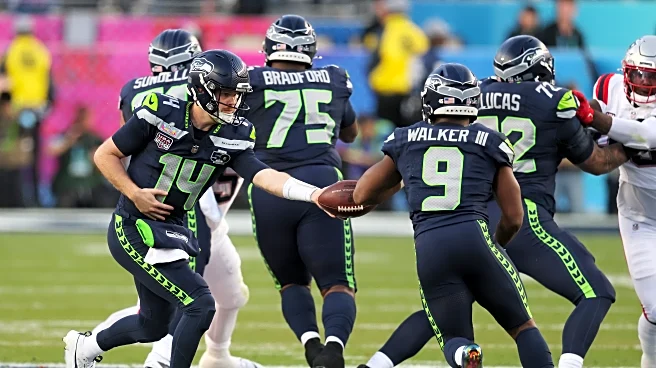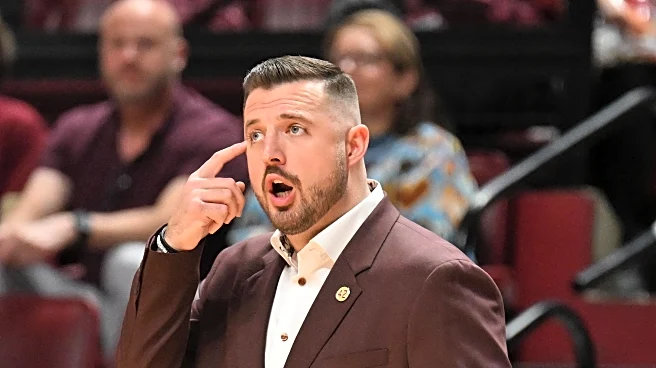What's Happening?
Vice President JD Vance emphasized that the United States is not seeking to 'babysit' the Gaza ceasefire, asserting that Israel is a partner rather than a 'vassal state.' This statement comes as U.S. officials,
including President Trump's Middle East envoy Steve Witkoff and Jared Kushner, visit Israel to support the ceasefire brokered by President Trump. The ceasefire, which took effect on October 10, aims to stabilize the region following recent violence. Vance's visit is part of a broader effort to ensure the truce holds, with Secretary of State Marco Rubio scheduled to meet with Israeli Prime Minister Benjamin Netanyahu later this week. Vance clarified that the U.S. role is not about monitoring in a controlling manner but ensuring that the administration's principles are upheld.
Why It's Important?
The U.S. involvement in the Gaza ceasefire is significant as it reflects ongoing diplomatic efforts to stabilize the Middle East. The ceasefire, if successful, could lead to improved relations and security in the region, benefiting both Israel and its neighbors. However, concerns about the potential deployment of an international security force in Gaza highlight the delicate balance of maintaining peace without infringing on Israel's autonomy. The U.S. aims to foster a partnership rather than impose control, which is crucial for maintaining trust and cooperation with Israel. The outcome of these diplomatic efforts could influence future U.S. foreign policy and its role in Middle Eastern affairs.
What's Next?
The next steps involve continued diplomatic engagement to ensure the ceasefire holds. Secretary of State Marco Rubio's upcoming meeting with Netanyahu will likely address the implementation of the ceasefire and the potential establishment of an international security force in Gaza. The U.S. will need to navigate concerns from Israel regarding its freedom to act in Gaza while coordinating with other countries interested in contributing to the stabilization force. The success of these efforts could pave the way for further peace initiatives in the region.
Beyond the Headlines
The broader implications of the U.S. role in the Gaza ceasefire include potential shifts in regional alliances and the U.S.'s influence in Middle Eastern politics. The emphasis on partnership rather than control may set a precedent for future diplomatic engagements, promoting mutual respect and cooperation. Additionally, the handling of the ceasefire could impact President Trump's legacy in foreign policy, particularly in the Middle East.









